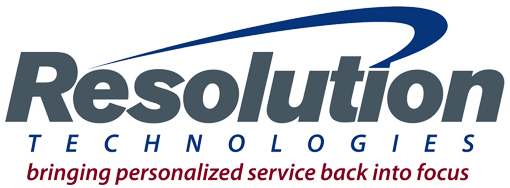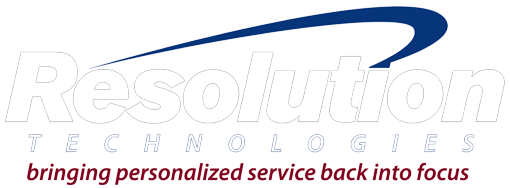How to Adapt to a Competitive Job Market: 5 Strategies to Stand Out
Navigating today’s job market can feel daunting. With more candidates competing for fewer positions, standing out has never been more critical. But how do you gain an edge when everyone seems equally qualified? The answer lies in going beyond your resume and embracing a proactive approach to job hunting. Here are five key strategies to help you adapt and thrive in a competitive job market:
1. Upskill to Stay Relevant
In a fast-evolving job market, the skills that were in demand a year ago might no longer be as valuable today. Employers are constantly seeking candidates who stay up-to-date with industry trends and new technologies. That’s where upskilling comes in.
What is upskilling? It’s the process of learning new skills or enhancing existing ones to stay competitive in your field. You can start by identifying key skills that are in high demand within your industry. For example, in fields like marketing, knowing data analytics or marketing automation can give you a huge advantage. In tech, learning programming languages like Python or JavaScript could be essential.
Where to start:
- Online courses: Platforms like Coursera, LinkedIn Learning, and Udemy offer affordable courses on a wide variety of topics.
- Certifications: Earning a certification in areas like project management, digital marketing, or cloud computing can boost your resume.
- Workshops and webinars: Many industries offer virtual learning opportunities to help professionals sharpen their skills.
Upskilling doesn’t just show you’re knowledgeable—it demonstrates that you’re proactive and dedicated to continuous learning, which employers love.
2. Embrace Networking (Both Online and Offline)
Networking is one of the most powerful tools for job seekers, yet many underestimate its value. In today’s competitive landscape, having the right connections can often open doors that might not even be advertised. Networking and working with a staffing agency go hand-in-hand when it comes to advancing your career. Networking helps you build connections and gain insider insights into industries, while a staffing agency provides direct access to job opportunities and expert guidance. Together, they amplify your chances of success. Your network can lead you to a staffing agency, which can then tap into its extensive employer network to find you the perfect role. Both strategies open doors that you may not even know existed, making them powerful tools for navigating today’s competitive job market.
How to network effectively:
- Leverage LinkedIn: LinkedIn is more than just an online resume. It’s a platform for showcasing your expertise and building connections. Start by connecting with colleagues, mentors, or people you admire in your industry. Engage with their content by commenting and sharing posts. Consider joining relevant industry groups and attending virtual events or webinars hosted on LinkedIn.
- Attend industry events: Whether in-person or virtual, industry-specific events provide great opportunities to meet like-minded professionals and potential employers. Be prepared with an elevator pitch and don’t be afraid to reach out afterward to continue the conversation.
- Informational interviews: Reach out to professionals in your field for informational interviews. This can be a great way to learn more about your industry and get advice while building a relationship.
Networking isn’t just about asking for help—it’s about building mutually beneficial relationships. Often, those connections will come through when you need them the most.
3. Leverage Personal Branding
Your personal brand is the story you tell potential employers about who you are, what you value, and why you’re the best candidate. It’s a combination of your skills, personality, and online presence. In a competitive job market, your personal brand can set you apart.
How to build your personal brand:
- Define your value proposition: What are your key strengths? What makes you unique? Define what you bring to the table and how you can solve employers’ problems.
- Create a consistent online presence: Make sure your social media accounts (especially LinkedIn) reflect your professional identity. Share articles or insights related to your field, and consider writing LinkedIn articles or blog posts on relevant topics.
- Portfolio and website: Depending on your field, a personal website or portfolio showcasing your work can be an impressive way to stand out. This is particularly relevant for roles in design, content creation, and technology.
Think of personal branding as marketing yourself. A well-crafted brand can leave a lasting impression on potential employers and hiring managers.
4. Tailor Your Resume and Cover Letter for Each Application
Gone are the days of using the same generic resume for every job. In today’s competitive job market, customization is key. Tailoring your resume and cover letter to the specific job you’re applying for can significantly improve your chances of getting noticed.
How to tailor effectively:
- Read the job description carefully: Identify the most important skills and qualifications that the employer is looking for, then make sure those are front and center on your resume.
- Highlight relevant experience: Shift the focus of your resume and cover letter to emphasize experience that aligns with the job requirements. For example, if the role focuses on leadership, prioritize examples that show your management skills.
- Use keywords: Many companies use applicant tracking systems (ATS) to filter resumes. To increase your chances of passing the ATS, incorporate relevant keywords from the job description into your resume and cover letter.
Customizing your application shows employers that you’re serious about the role and willing to go the extra mile.
Disclaimer: Although it is important to add relevant past experience, please never embellish your experience or overstate your skill set.
5. Be Adaptable and Resilient
In a competitive job market, setbacks are inevitable. Whether it’s dealing with rejections or facing longer-than-expected job searches, adaptability and resilience are crucial traits for success.
How to stay resilient:
- Embrace a growth mindset: Instead of viewing rejection as failure, see it as an opportunity to learn and grow. Reflect on each experience to see how you can improve.
- Be flexible: Consider expanding your search to roles or industries you hadn’t initially considered. Temporary or freelance positions, for instance, can offer valuable experience and help you build your network.
- Stay organized: Keep track of your applications, follow-up emails, and networking contacts to stay on top of your job search.
Staying adaptable in your job search not only helps you manage stress but also demonstrates to employers that you can handle challenges with grace.
Final Thoughts
Standing out in a competitive job market is no easy task, but with the right strategies, it’s entirely possible. By focusing on upskilling, building strong networks, leveraging personal branding, tailoring your applications, and staying adaptable, you can position yourself as a top candidate. Remember, the job search is a journey, and each step you take brings you closer to your goal. Stay positive, stay persistent, and soon enough, the right opportunity will come your way.


